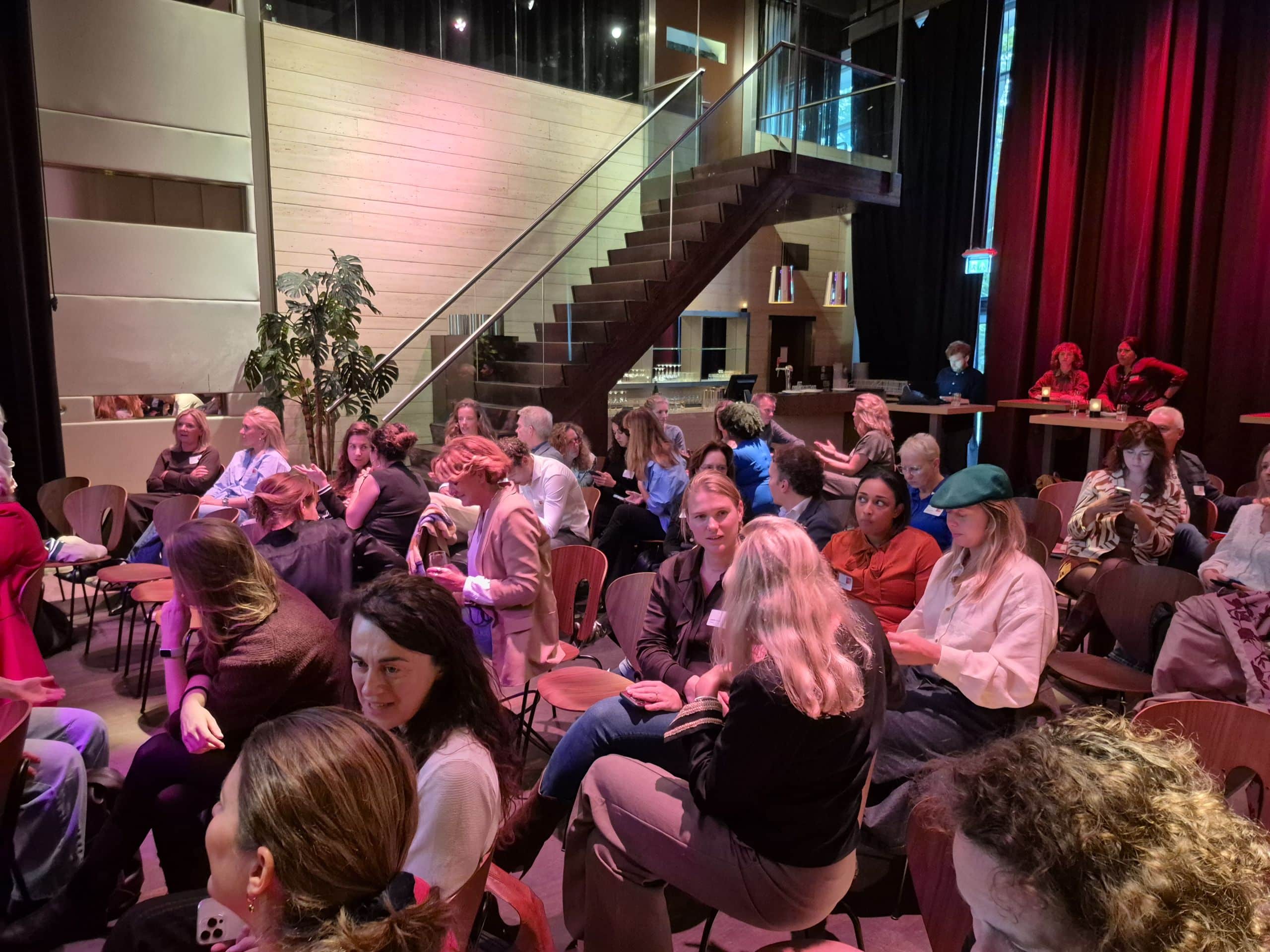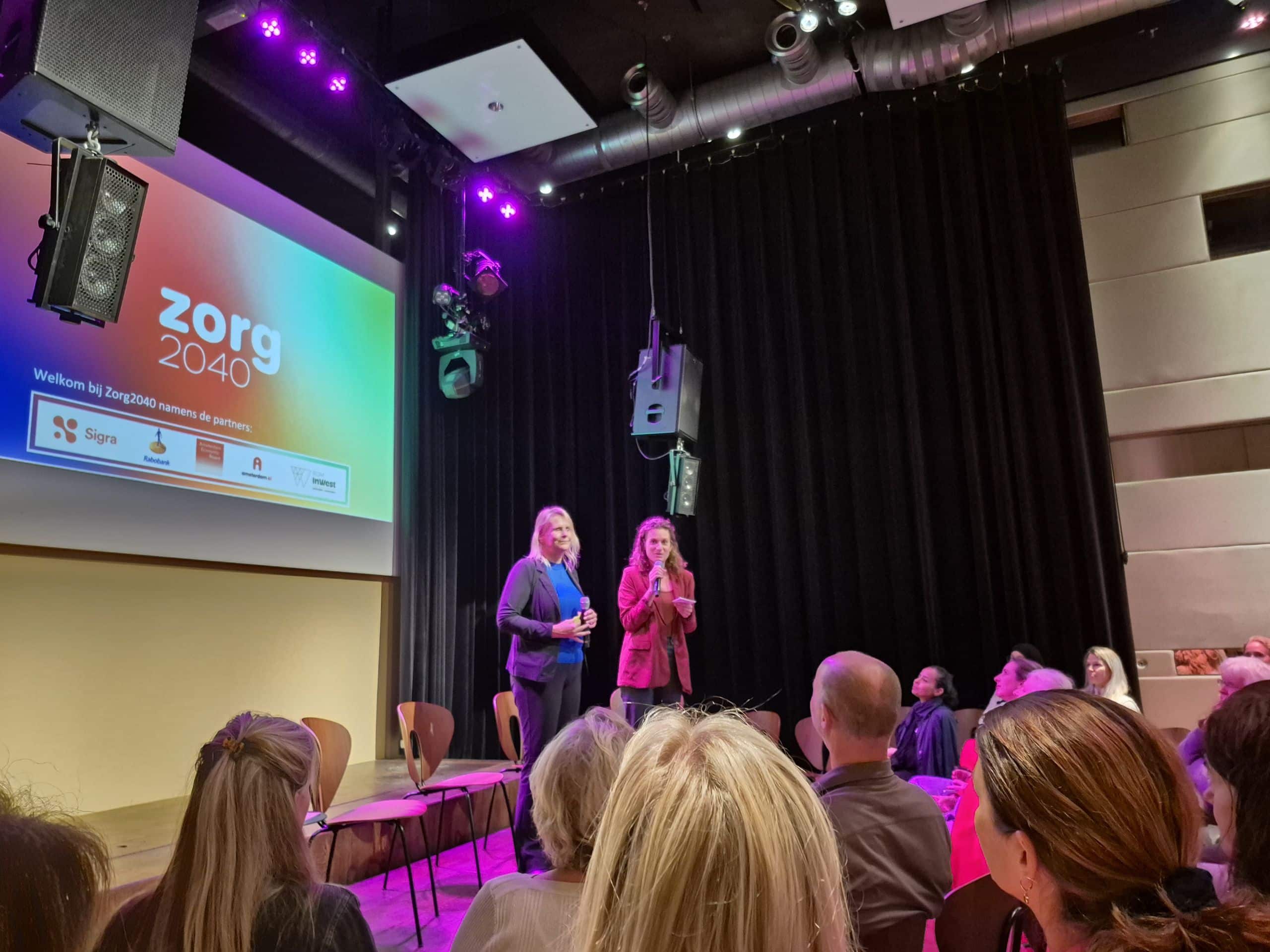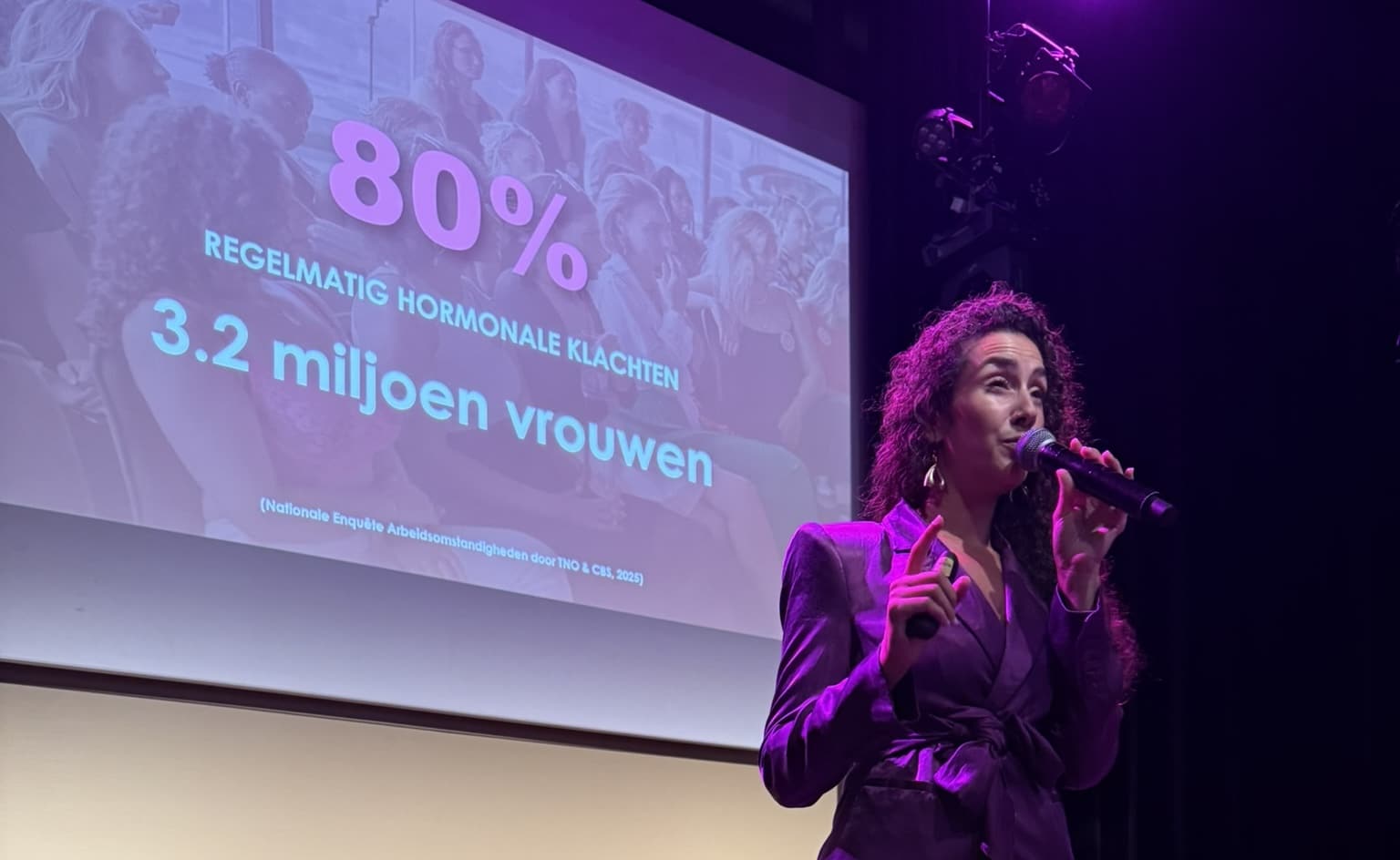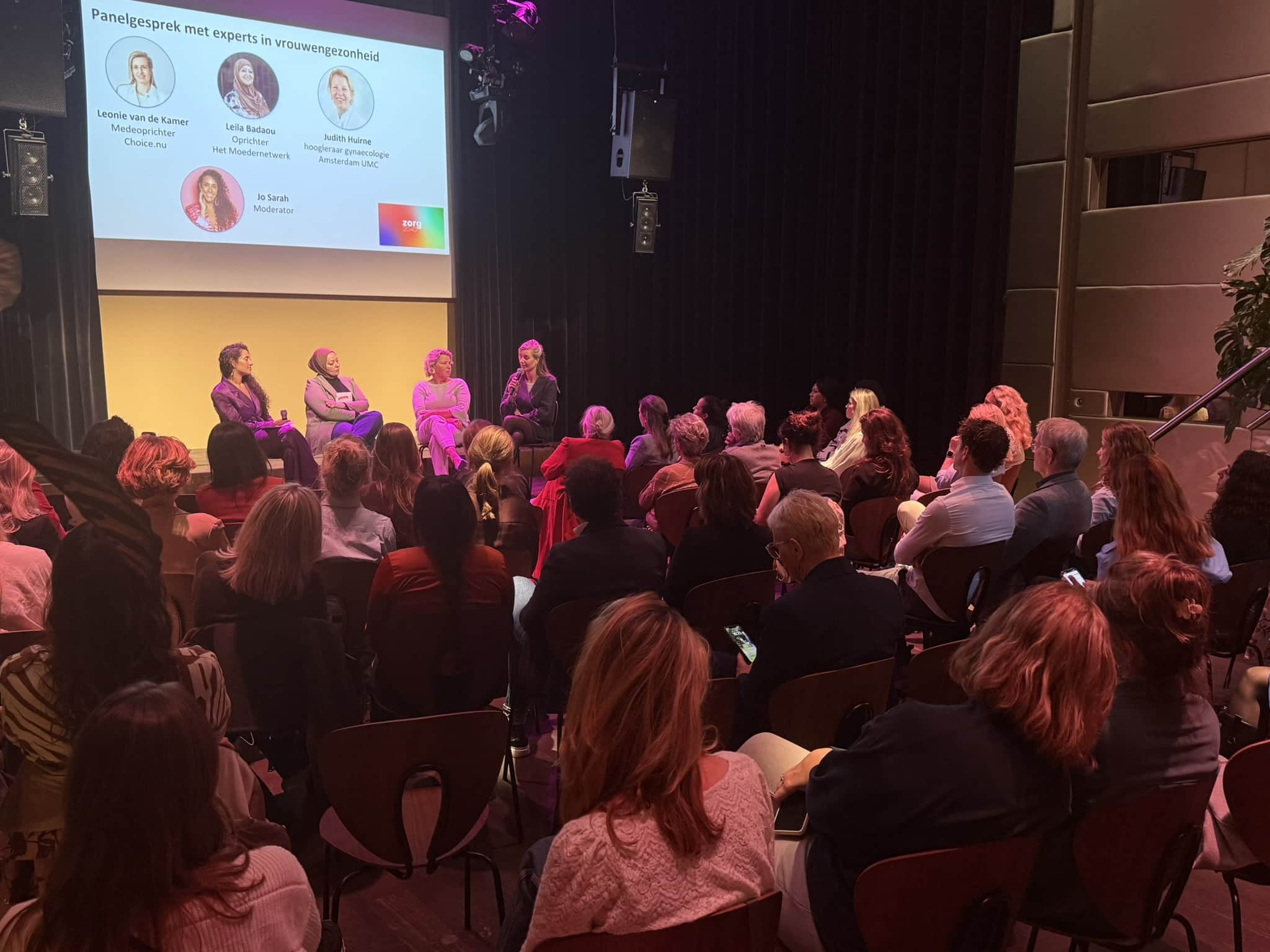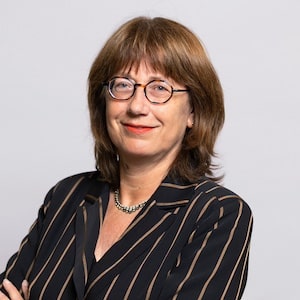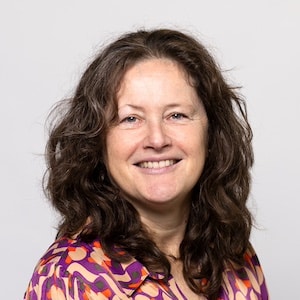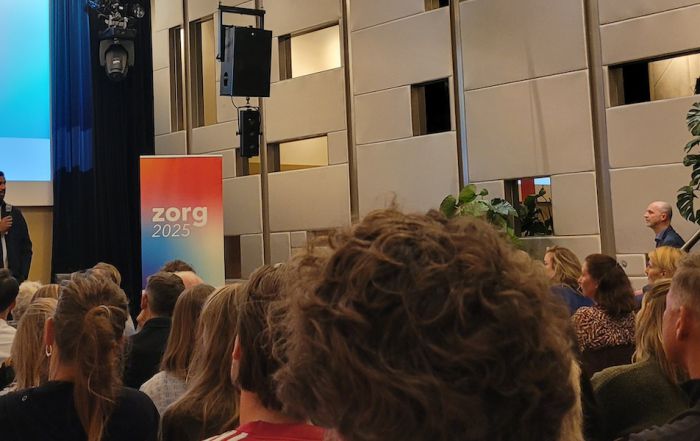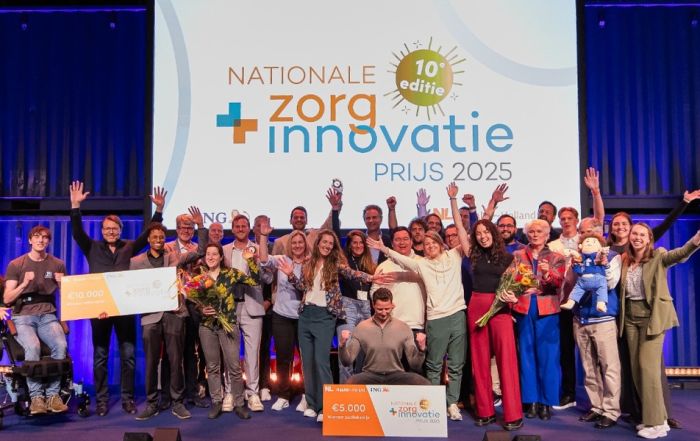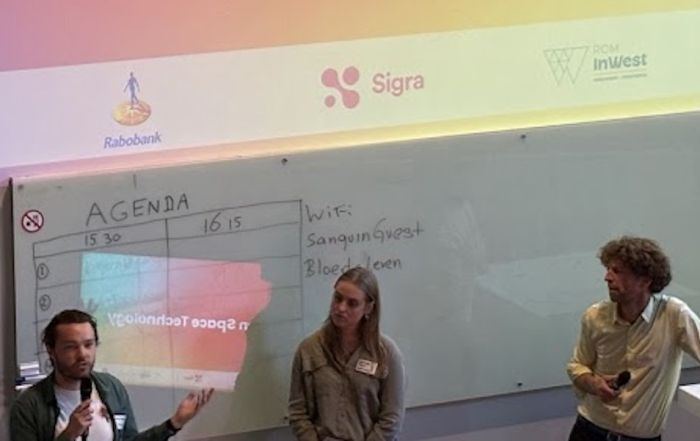FemHealth in 2040: investing pays off
Focusing more on women in health care innovation and research will have a huge, positive impact. On our collective well-being, sick-leave and healthcare costs. But how can we achieve that?
At the Zorg2040 meeting on FemHealth, an enthusiastic group of healthcare professionals, researchers, investors and entrepreneurs engaged in conversation.
In 2010, Lola is 20 years old. She struggles with severe menstrual symptoms caused by PCOS, a condition that affects 1 in 10 women. Her gynecologist prescribes oral contraceptives. Lola is given no choice and no further explanation.
Fifteen years later, in 2025, Lola wants to become a mother. She stops taking the pill, but getting pregnant proves difficult. She quietly undergoes several miscarriages. Eventually, a successful pregnancy ensues. The delivery is hard, the postpartum period traumatic. Her body is broken, her mind exhausted. She receives hardly any aftercare and has to return to work quickly, while her hormones go all over the place. Her husband watches her struggle, but doesn’t know how to help.
Hormonal complaints: effect on work
Lola’s is the story of many women, according to speaker and chairperson Jo Sarah at the start of this Zorg2040 edition. Some 80 percent of working women have hormonal symptoms; 39 percent report that this also affects their job. Yet only 7 percent of medical research worldwide goes into women’s health. According to the World Economic Forum study Prescription for Change (pdf), closing this gap could save us $1 trillion annually.
“Medical systems are built for and by men. That has to change,” argues Jo Sarah. She is founder of Umaversity, a community for the mental, physical and sexual well-being of women+. For example, Umaversity has an online knowledge base, offers expert guidance and supports communities around women’s health.
Text continues below the photos.
Swipe through the selection. Or view all photos of this Zorg2040 event.
A utopia?
Fast forward to 2040. Lola recognises her hormonal symptoms in time thanks to smart technology. Her doctor takes her seriously, she is offered appropriate options and does not have to fight for recognition. At work, openness about menstruation and menopause is normal. And instead of being exhausted, she feels prepared – supported by knowledge, tools and a caring community.
Sounds utopian? Not if it is up to Jo Sarah and the other participants in the Zorg2040 meeting. They are healthcare professionals and researchers, investors and entrepreneurs from the world of health and prevention. They are present at the invitation of the Zorg2040 coalition, which consists of Sigra, Rabobank, Amsterdam AI, Amsterdam Economic Board and ROM InWest. During this Zorg2040 event on FemHealth, this important topic is on the agenda.
Not understood
Sarah joins an expert panel of three women who are each boosting women’s health in their own way. For example, Leila Badaou is founder of Het Moedernetwerk, a foundation supporting families with children with disabilities. “In my work in disability care, I saw many mothers from other cultures not knowing who to turn to. They don’t feel understood in the system.”
Badaou talks about the impact of her network, in which mothers support each other, share experiences and become stronger together. “Care becomes more effective when you start with the mother. A woman who feels heard and supported is better able to support her child. And that affects the whole society.” She advocates structural cooperation between formal care organisations and informal networks like hers. “There are so many problems women deal with: in such a network you can share what you encounter.”
Leonie van de Kamer is founder of startup Choice.nu, a company developing pain- and hormone-free contraception. “The pill has brought a lot of good, but it also does a lot to women’s hormones in important years of life. We want to give women real freedom of choice.”
Her company developed an implant the size of a grain of rice that is placed at the beginning of the fallopian tube. Getting that implant to market is complicated. Because of strict regulations, which Van de Kamer thinks is right, of course. But also because investment lags. “We have now started a crowdfunding. Actually ridiculous that this is necessary.”
Investment climate
Judith Huirne, professor of gynecology at Amsterdam UMC also believes women’s health should get more attention in the national investment climate. “We have the infrastructure and knowledge in the Netherlands to take a leading role. Any investment in women’s health is well worth it.”
Huirne has been working on this important topic since her 2007 doctorate. “It surprised me even then how little research money there actually is for conditions that only affect women, how long it takes us to make the right diagnoses and that – if there are any – we often treat only symptomatically.”
Since then, Huirne has been pushing for better diagnostics, shorter pathways and more structural attention to the economic damage of untreated symptoms. “We talk about huge absenteeism rates and healthcare costs, but hardly invest in the cause. This is really not prioritised enough in the Netherlands, which is why I’m trying to map out the social impact more and more. We have to show what it costs not to invest.”
Action-oriented
The panel stirred up quite a lot of energy in the room, as it turned out when the attendees started talking to each other about what they themselves could contribute to FemHealth, based on their own experience and expertise. They shared their ideas: invest in women-friendly innovations, focus on iron deficiency, start a new platform, create a podcast, involve men in the discussion about menstruation. But also: initiate research around women’s health and work, make the subject discussable at work, develop new diagnostics and bring women with PCOS together.
So there is a lot of action orientation, prompted by personal stories. We also see this in the plenary discussion that closes the afternoon. One woman talks about her burnout diagnosis, when she actually turned out to be in transition. Another talks about her two daughters, who can’t go to school every month because of menstrual pain. And a third about her single father, who didn’t quite know what to do when she first started her period. She says, “We should not exclude men when we talk about this issue. We should help them make this an easier and safer area.”
And the room agreed: to make women’s health a full part of our health economy in 2040, we need to talk more about women-specific conditions and their impact on women themselves, as well as on our society. As Jo Sarah said earlier this afternoon, “The future of health is neither male nor female, but human and equal. Let’s write a new chapter together.”
Text: Mirjam Streefkerk
Do you also want a healthy Amsterdam region?
Read how the Amsterdam Economic Board, together with partners, is working on our Healthy Region theme. With your organisation, you too can commit to a future-proof regional economy. Discover the benefits for partners in our network. Relationship Manager Marjan Schrama is happy to tell you more.
13 October 2025
Read more about
Contact us
Want to keep up to date?
Get the best regional news and events (in Dutch) via the Board Update newsletter
Share this news
Want to keep informed?
Follow us daily on LinkedIn and sign up for the Board Update newsletter.
Read more
- Focusing more on women in health care innovation and research will have ...
- What is the Amsterdam Metropolitan Area’s position on critical raw materials? ...
- Preparations for the National Zorginnovatieprijs 2026 by Zorginnovatie.nl are underway, and registration ...

